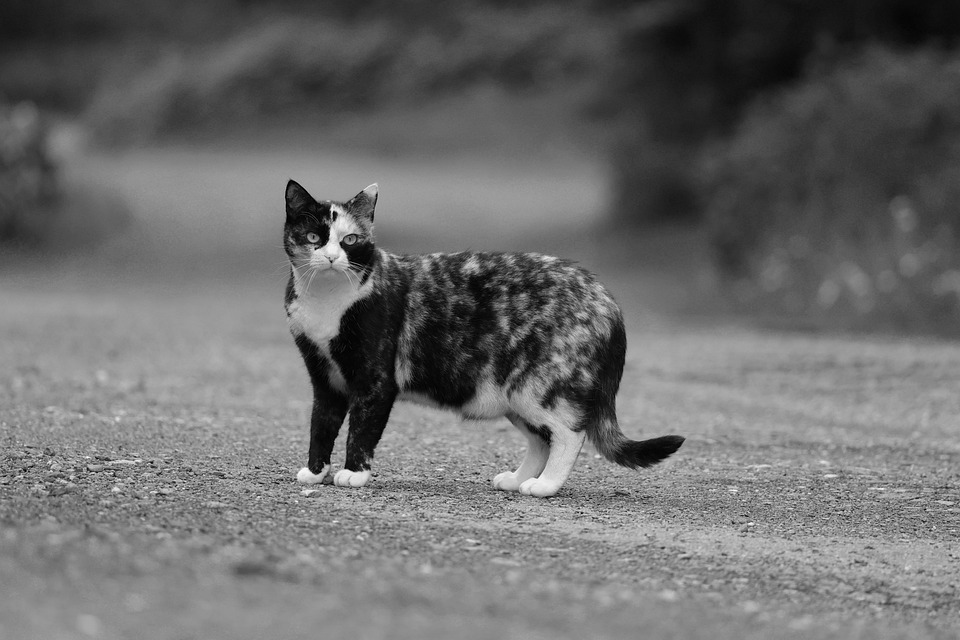The Importance of Quality Sleep for Overall Health and Well-being
Introduction:
Quality sleep is essential for all living beings, including our feline friends. Just like humans, cats require adequate sleep to maintain their overall health and well-being. In this article, we will explore the significance of quality sleep for cats and how it affects their physical and mental health.
1. The Sleep Cycle of Cats:
Cats have unique sleep patterns that differ from those of humans. While humans typically have one long period of sleep at night, cats have multiple sleep cycles throughout the day. These cycles consist of both rapid eye movement (REM) and non-REM sleep. REM sleep is associated with dreaming, while non-REM sleep is characterized by deep restorative sleep.
Cats spend about 70-80% of their sleep time in light non-REM sleep and the remaining 20-30% in REM sleep. On average, cats sleep for 12-16 hours per day, with kittens and elderly cats requiring even more sleep.
2. Benefits of Quality Sleep for Cats:
Quality sleep is vital for cats as it provides them with rest and rejuvenation for their physical and mental health. During sleep, the body repairs and regenerates tissues, strengthens the immune system, and promotes healthy growth and development, especially in kittens.
Additionally, quality sleep enhances cognitive function and learning abilities in cats. It aids in memory consolidation, problem-solving skills, and overall mental acuity.
3. Common Sleep Disorders in Cats:
Just like humans, cats can also experience sleep disorders. Insomnia, difficulties falling asleep, excessive sleepiness, and lethargy are common sleep disorders in cats. Sleep apnea and breathing problems during sleep can also occur in certain breeds or cats with respiratory issues.
If you notice any abnormal sleep patterns or behavior in your cat, it is essential to consult a veterinarian for proper diagnosis and treatment.
4. Creating a Sleep-Friendly Environment:
To ensure quality sleep for your cat, it is crucial to create a sleep-friendly environment. Provide a comfortable and safe sleeping area, such as a cozy bed or a designated spot where your cat feels secure. Choose bedding materials that are soft, hypoallergenic, and easy to clean.
Regulate light and noise levels in the sleeping area. Cats are sensitive to light and noise, so ensuring a quiet and dimly lit space can help them sleep better. Additionally, maintaining a suitable temperature and proper ventilation in the sleeping area is essential for your cat’s comfort.
5. Promoting Healthy Sleep Habits in Cats:
Establishing a consistent sleep routine is beneficial for cats. Cats thrive on routine, so try to create a schedule that includes regular sleep and wake-up times. Encourage regular exercise and playtime during the day to expend energy and promote better sleep at night.
Managing stress and anxiety is also crucial for healthy sleep in cats. Provide a stress-free environment, offer hiding places, and consider using pheromone products that help to calm cats. Avoid disruptive sleep disturbances, such as loud noises or sudden changes in the environment.
6. FAQs – Frequently Asked Questions:
Q1. How long do cats sleep in a day?
Cats sleep for 12-16 hours per day, on average.
Q2. Are catnaps enough for cats, or do they need longer periods of sleep?
Catnaps are not enough for cats, as they require longer periods of uninterrupted sleep to fulfill their restorative needs.
Q3. How can I tell if my cat is not getting enough quality sleep?
Signs of inadequate sleep in cats may include excessive daytime sleepiness, irritability, decreased appetite, and lack of energy or enthusiasm.
Q4. What can I do to help my cat improve its sleep quality?
Creating a sleep-friendly environment, establishing a consistent sleep routine, and managing stress and anxiety can help improve your cat’s sleep quality.
Q5. Are there any specific breeds of cats that require more sleep than others?
While all cats require adequate sleep, certain breeds, such as Persians and Ragdolls, are known to be more sleep-loving and may require more sleep than others.
Q6. Is it normal for cats to snore while sleeping?
Snoring can be normal in cats, but if it is excessive, loud, or accompanied by other respiratory symptoms, it is advisable to consult a veterinarian.
Q7. Can cats dream like humans do during REM sleep?
It is believed that cats do dream during REM sleep, just like humans.
Q8. Should I wake my cat up if it’s having a nightmare?
It is generally recommended not to wake a cat up during a nightmare, as it may startle or disorient them. Instead, offer gentle reassurance and allow them to wake up naturally.
Conclusion:
Quality sleep plays a crucial role in maintaining the overall health and well-being of cats. It is essential for their physical and mental health, immune system function, growth, and cognitive abilities. By prioritizing and optimizing their sleep routines, cat owners can ensure that their furry friends enjoy the benefits of quality sleep for a happy and healthy life.








